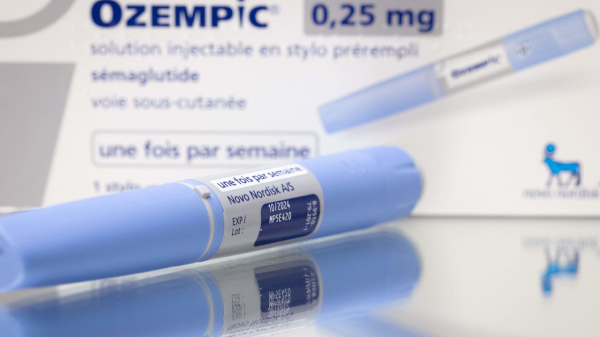Amidst growing concerns over accessibility and affordability, the U.S. Senate has initiated a comprehensive investigation into the soaring prices of Novo Nordisk's renowned diabetes and weight loss medications, Ozempic and Wegovy, within the nation's borders. Senator Bernie Sanders, helming the Health, Education, Labor, and Pensions (HELP) Committee, unveiled the inquiry targeting the Danish pharmaceutical giant, underlining the critical importance of these medications while addressing the pressing issue of exorbitant costs.
Sanders, in a pointed missive addressed to Novo Nordisk CEO Lars Fruergaard Jørgensen, lauded the groundbreaking contributions of the company's scientists in developing drugs with transformative potential for millions grappling with type 2 diabetes and obesity. However, Sanders emphasized that the efficacy of these medications remains moot if financial barriers prevent access to those in need, warning of dire consequences for public health and the stability of healthcare systems.
Highlighting a stark contrast in pricing strategies, Sanders underscored that Novo Nordisk charges substantially less for Ozempic and Wegovy in other nations, unveiling a glaring disconnect in cost disparities. With Ozempic priced at $969 per month in the U.S. compared to $155 in Canada and a mere $59 in Germany, and Wegovy commanding even higher costs domestically, the investigation aims to unravel the rationale behind such vast pricing differentials.
In a direct challenge to the pharmaceutical industry, Sanders posed a fundamental question to Jørgensen: will Novo Nordisk commit to significant reductions in both list and net prices for Ozempic and Wegovy? Demanding transparency regarding pricing determinants and research expenditure, Sanders set a deadline of May 8 for Novo Nordisk to furnish detailed responses to a series of inquiries.
Despite declining to disclose production costs in the wake of a recent study revealing Ozempic's potential manufacturability at a fraction of its retail price, Novo Nordisk reaffirmed its commitment to addressing accessibility concerns while cautioning against oversimplifying the complexities inherent in the healthcare landscape. With investments exceeding $5 billion in research and development in 2023 and a projected $6 billion allocation for expanding GLP-1 manufacturing capabilities this year, Novo Nordisk contends that sustainable solutions demand a nuanced understanding of industry dynamics.
As the Senate investigation unfolds, the spotlight on Novo Nordisk illuminates broader challenges surrounding drug pricing and access, underscoring the imperative for collaborative efforts to reconcile innovation with affordability in healthcare delivery.
In response to mounting scrutiny over pricing practices, Novo Nordisk has cautioned against oversimplifying the intricate scientific processes involved in disease comprehension, treatment development, and manufacturing. Emphasizing the multifaceted nature of both domestic and global healthcare frameworks, the company underscored the nuanced complexities often overlooked in public discourse.
It's tempting to oversimplify the intricate science behind disease understanding and the arduous journey of treatment development and production, alongside the complexities of U.S. and global healthcare systems. However, the public debate frequently overlooks this immensely intricate reality," remarked the company.
As the dialogue surrounding the accessibility and affordability of medications like Ozempic and Wegovy continues to intensify, it is evident that striking a balance between innovation and affordability remains a formidable challenge. The Senate's investigation into Novo Nordisk's pricing practices serves as a catalyst for broader discussions on healthcare equity and the role of pharmaceutical companies in shaping access to life-changing treatments. Moving forward, collaborative efforts between policymakers, industry stakeholders, and advocacy groups will be essential in fostering sustainable solutions that prioritize patient well-being while navigating the intricate landscape of healthcare economics. Ultimately, achieving meaningful progress in addressing the complexities of drug pricing requires a holistic approach that acknowledges the interplay of scientific innovation, regulatory frameworks, and socioeconomic factors.





